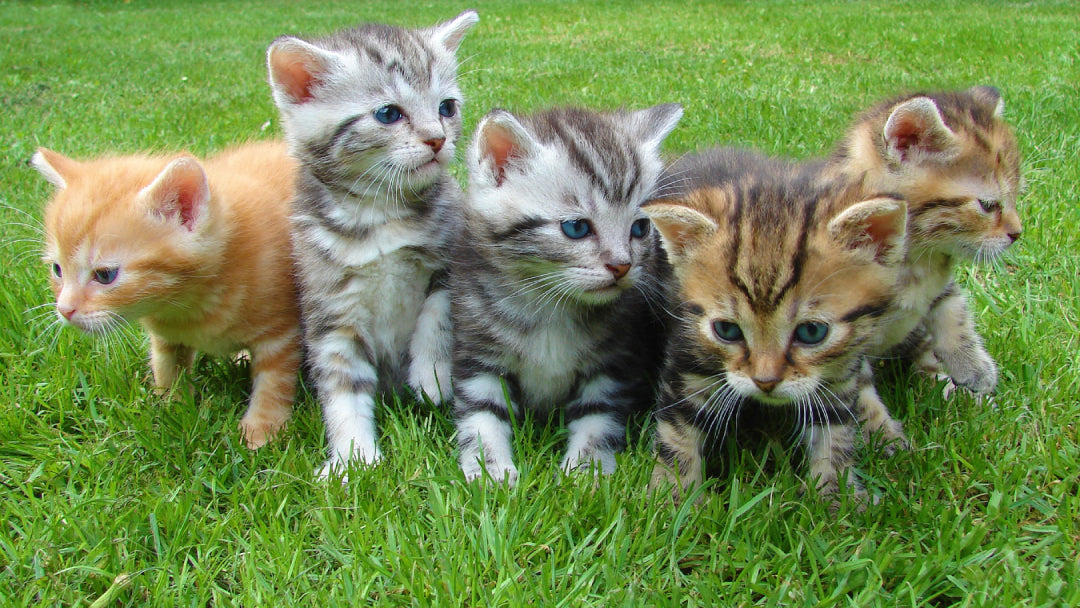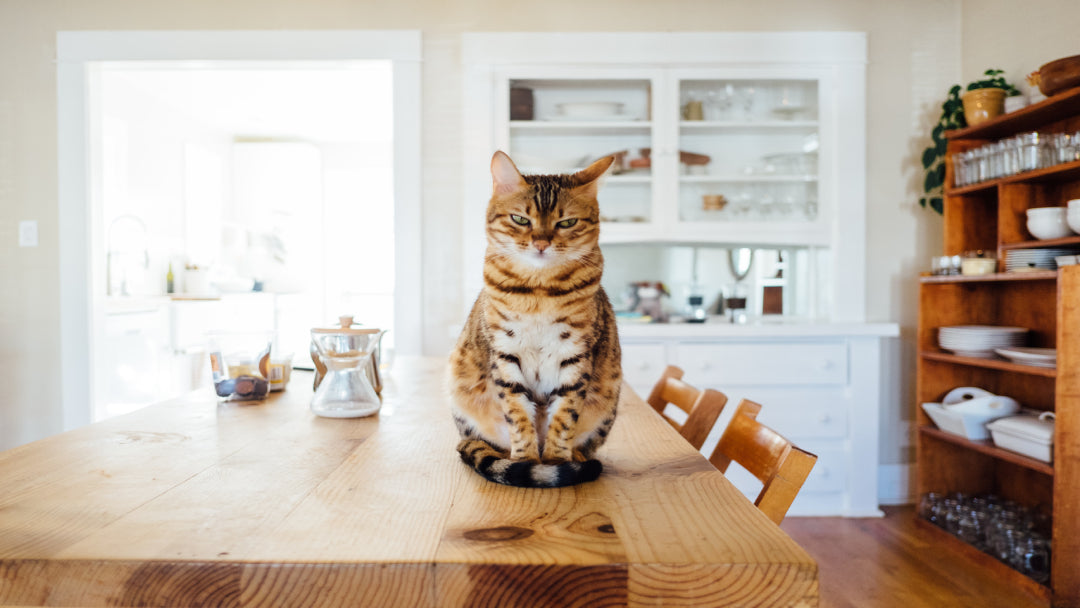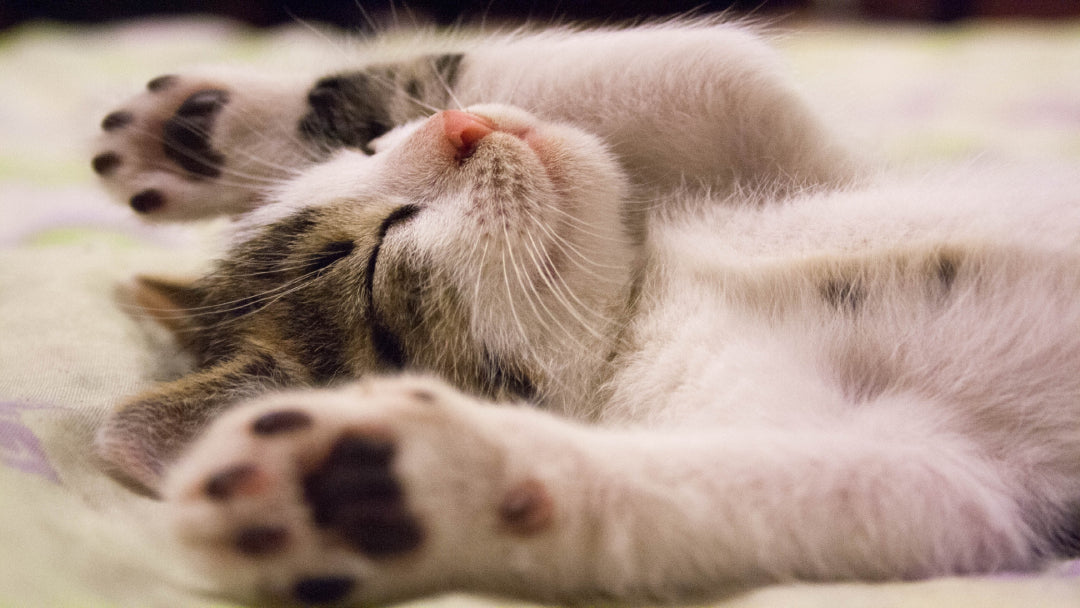Cats are mysterious creatures, and one of the most common questions that cat owners ask is, "Why does my cat eat grass?" While there is no definitive answer, research suggests that cats may consume grass for a variety of reasons.
In the wild, cats may be attracted to the taste and texture of grass, while in the home, they may use grass as a natural remedy to aid with digestion. It is also possible that cats eat grass simply because they are curious. Regardless of the reason, understanding why cats eat grass can help owners provide the best possible care for their furry friends.
What Are The Reasons That Cats Eat Grass?
Many cat owners believe that cats only eat grass when they have a stomach ache in order to induce vomiting. While this can be one of the reasons why your cat is munching on your front lawn, it isn’t always the only reason. Here are a few of the reasons why your cat may be eating grass.
Is your pet suffering from pain? Give them our Ouchie formula to get them back on their paws!
Your Cat is Trying to Boost their Health
Cats eating grass can provide a number of health benefits. Cats are naturally drawn to grass since it can provide a number of vitamins and minerals for them to stay healthy.
Folic acid is an important nutrient for cats, just as it is for humans. Folic acid is a B-vitamin found in many foods, including some meats, eggs, and leafy green vegetables. It helps cats to form red blood cells, which carry oxygen throughout the body. Without enough folic acid, cats can become anemic, which can affect their energy levels.
Folic acid is also important for cats during pregnancy. It helps to form the fetus’s neural tube, which is necessary for the development of the spine and brain. Folic acid deficiency in pregnant cats can lead to birth defects, including spina bifida, in kittens.
In addition to food sources, cats can also receive folic acid from supplements. If cats are not receiving enough folic acid from their diet, a veterinarian may recommend adding a folic acid supplement to their regular meals.
The vitamins and minerals in the grass can also help cats keep their fur coat in good condition, as it contains essential nutrients that help promote a healthy coat. Finally, eating grass can help cats to keep their teeth and gums healthy, as it acts as a natural toothbrush, helping to remove plaque and food particles.

They Need a Little Help Going
Cats use eating grass as a natural laxative to help regulate their digestive system. This behavior is normal and can be beneficial for cats. Eating grass helps cats regurgitate fur balls, which can be uncomfortable and cause blockages in the digestive system.
Are your cats having some trouble “going”? Try our Can’t Poo Poo formula to help your cat go!
Furballs, or trichobezoars, can be a very uncomfortable and potentially dangerous problem for cats. When cats groom themselves, they swallow their shed fur. This fur can accumulate in the stomach and form hairballs, which can cause vomiting, loss of appetite, and other digestive problems.
Furballs can also block the intestines, leading to severe health complications such as dehydration, malnutrition, and even death if untreated. If your cat is displaying any of the symptoms associated with furballs, it is important to take them to the vet for a proper diagnosis and treatment.
Related: Do You Know the Number One Reason Pet Owners Seek Help? DIARRHEA!
When fur balls get into the digestive tract, it makes it difficult for cats to have a normal bowel movement. Cats will often eat grass which will stimulate their digestive system and the muscles inside their intestines to help pass the blockage.
The fiber and chlorophyll in the grass helps to move food through the digestive system, while the natural enzymes help break down food particles and promote healthy digestion.
Grass eating can also help relieve cats of internal parasites, such as worms, as the chlorophyll in the grass can help to neutralize the parasites. This can help cats feel more comfortable and reduce the presence of any unpleasant symptoms.
If a cat is eating grass more frequently than normal, it may be a sign that something else is wrong. If your cat seems to be eating grass more often than normal, it is best to consult with a veterinarian to check for any underlying health issues.
Related: My Pet Has Constipation! Help!
They Need to Throw Up
Cats eat grass to throw up for a number of reasons. The most common reason is to help them expel fur balls, which cats groom off themselves by licking their fur. Eating grass can help push the hairballs up and out of their system.
Eating the grass can also help cats get rid of things that are irritating their digestive system, such as parasites or indigestible items they may have eaten. In some cases, cats may eat grass as a way to increase their fiber intake, which can help with digestive issues.
Eating grass can also help cats vomit toxins or things that have made them sick. As such, it can be a natural way for cats to rid their bodies of things that they shouldn’t have ingested.
Read: Learn About Healthy Paws Herbal Labs’s Story!

How Do I Help My Cat?
Listen, it is perfectly normal and healthy for cats to eat grass. Cats are obligate carnivores, meaning their diet should consist mainly of animal proteins, but they also benefit from eating grass. Grass provides cats with a variety of vitamins and minerals, as well as other beneficial nutrients.
This behavior is a part of their natural instinct so make sure that your cat does not eat grass treated with synthetic pesticides or herbicides, as these can be toxic to cats. Also, cats should not eat any grass that may have been treated with fertilizers. Eating grass that has been treated with fertilizers can cause an upset stomach and may lead to additional digestive problems.



